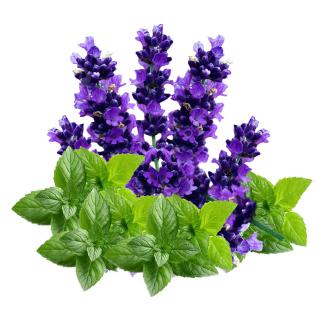
Several medicinal plants are known for their potential to help improve sleep quality. Keep in mind that while these herbs and plants may offer some sleep-promoting benefits, it's essential to consult with a healthcare professional before using them, especially if you have any underlying health conditions or are taking medications. Here are some plants commonly used to promote better sleep:
- Lavender (Lavandula angustifolia): Lavender is well-known for its calming and soothing properties. You can use lavender essential oil in a diffuser or apply it topically to promote relaxation and improve sleep.
- Chamomile (Matricaria chamomilla): Chamomile is often consumed as a herbal tea and is known for its mild sedative effects. It can help reduce anxiety and promote better sleep.
- Valerian (Valeriana officinalis): Valerian root has been used as a natural remedy for sleep disorders and anxiety. It's available in various forms, such as capsules, teas, or tinctures.
- Passionflower (Passiflora incarnata): Passionflower is believed to have mild sedative effects and can be consumed as a tea or in supplement form.
- Lemon Balm (Melissa officinalis): Lemon balm is an herb from the mint family and is known for its calming properties. It can be consumed as a tea or taken as a supplement.
- Ashwagandha (Withania somnifera): Ashwagandha is an adaptogenic herb that may help reduce stress and anxiety, leading to better sleep.
- Peppermint (Mentha piperita): Peppermint tea can help relax the muscles in your digestive tract, potentially reducing indigestion or discomfort that might disrupt your sleep.
- Ginkgo Biloba (Ginkgo biloba): Ginkgo biloba may improve blood circulation and cognitive function, which can indirectly support better sleep.
- California Poppy (Eschscholzia californica): California poppy is used as a mild sedative and can help with anxiety and insomnia.
- L-theanine: Although not a plant, L-theanine is an amino acid found in tea leaves, particularly in green tea. It promotes relaxation and may improve the quality of sleep. You can consume it through green tea or as a supplement.
Remember that individual responses to these medicinal plants may vary, and it's important to use them in moderation. If you're experiencing chronic sleep problems, it's best to consult a healthcare professional for a proper diagnosis and guidance on the most appropriate treatment. Additionally, always be cautious about potential interactions with other medications or health conditions.






